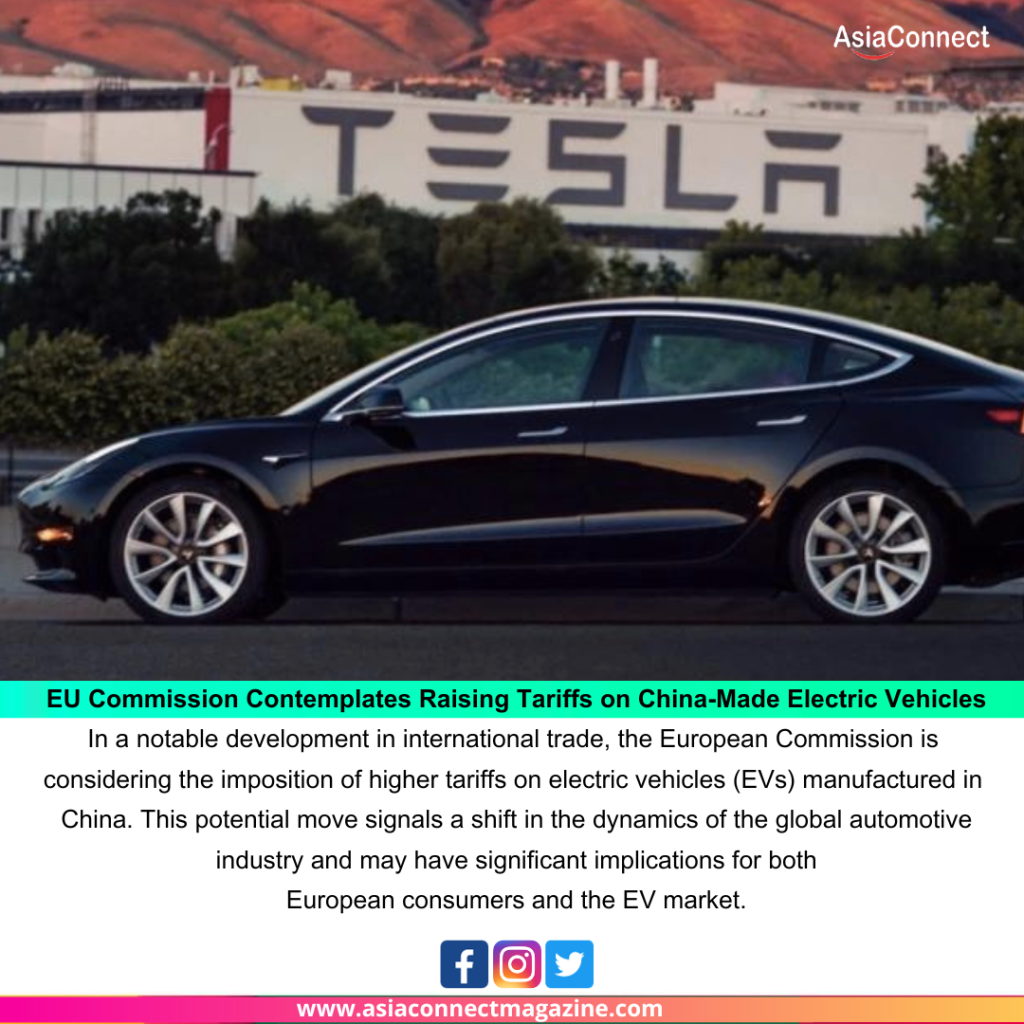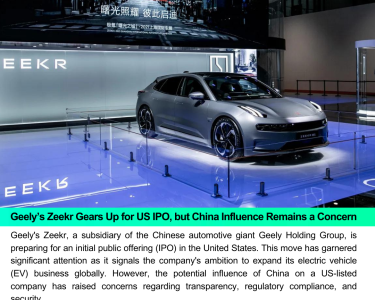
In a notable development in international trade, the European Commission is considering the imposition of higher tariffs on electric vehicles (EVs) manufactured in China. This potential move signals a shift in the dynamics of the global automotive industry and may have significant implications for both European consumers and the EV market.
The European Union has been actively promoting the adoption of electric vehicles as part of its strategy to reduce carbon emissions and combat climate change. In recent years, the demand for EVs has surged across the continent, with consumers increasingly opting for electric alternatives to traditional internal combustion engine vehicles.
China, on the other hand, has established itself as a global leader in EV production, with numerous Chinese automakers dominating the electric vehicle market. These companies have been able to offer competitive pricing, making their EVs an attractive option for European consumers.
The potential tariff increase being considered by the European Commission is viewed as a response to concerns over fair competition and market access. European automakers have voiced concerns about the uneven playing field, alleging that Chinese EV manufacturers benefit from state subsidies and incentives, providing them with an unfair advantage in terms of pricing.
If the European Commission decides to raise tariffs on China-made EVs, it could lead to several significant consequences:
- Higher Costs for European Consumers: One immediate impact would be an increase in the price of Chinese-made EVs, making them less affordable for European consumers. This could potentially slow down the adoption of electric vehicles in the region.
- Support for Local Manufacturers: European automakers, already investing heavily in electric vehicle technology, could benefit from the tariff increase as it would level the playing field and make their products more competitive in terms of pricing.
- Trade Tensions: Such a move could potentially strain EU-China trade relations, as it may be perceived as protectionist by Chinese authorities. Trade disputes and retaliatory measures could follow, affecting various industries beyond just the automotive sector.
- Impact on Global EV Market: The decision could influence the global electric vehicle market dynamics, as China is a major player not only in production but also in the supply chain of EV components. Changes in tariffs may disrupt global supply chains and production networks.
- Environmental Implications: Higher tariffs on Chinese EVs could slow down the transition to electric vehicles, which play a crucial role in reducing carbon emissions. Slower adoption of EVs may hinder Europe’s progress toward achieving its climate goals.
It’s worth noting that the European Commission is currently in the evaluation phase, and no final decision has been made regarding the tariff increase. The outcome of this evaluation will depend on a variety of factors, including the potential impact on consumers, the automotive industry, and international trade relations.
In conclusion, the European Commission’s contemplation of raising tariffs on China-made electric vehicles reflects the complexities of international trade and the evolving dynamics of the electric vehicle market. The decision, when reached, will have far-reaching consequences, affecting consumers, manufacturers, and global trade relationships. Balancing the promotion of fair competition and environmental goals will be essential in shaping the outcome of this trade consideration.




